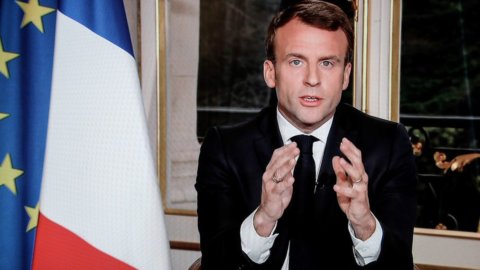Breakthrough in the UK. A little over a month after Brexit, the majority and the opposition change the cards on the table. On the one hand there is Theresa May, ready to ask for a postponement of the date of leaving the European Union in the event of a new rejection of the agreement with Brussels and a vote against the No deal. On the other there is Jeremy Corbyn, leader of the Labor opposition, who formally supports the possibility of convening a new referendum on Brexit. Two openings that could radically change the future of the United Kingdom while the hands inexorably approach the date of the official divorce, scheduled for next March 29th.
Never until now, on both sides, had the exit date or Brexit itself been formally questioned.
BREXIT: THE TURNING POINT OF THERESA MAY
In the British newspapers today the opening headlines are all for the premier. Theresa May presented herself again in front of Parliament, offering deputies three different options and proposing a very tight agenda. By 12 March, as already established (the vote should have taken place already this week, but the Premier took time), the House of Commons will be called to vote on the agreement signed with Brussels. If, and it is not a remote hypothesis, the agreement will meet a new failure, deputies will have to choose whether to say Yes or No to the scariest option: the No deal. If also in this case the votes against prevail, on March 14 the Parliament will have to vote on the extension of Article 50. Speaking in simple terms: a postponement of Brexit, even if "brief", specified the prime minister. The new deadline could be set at the end of June.
"The alternative remains between a deal, a no deal or a no Brexit", said May, underlining that the latter option would represent a betrayal of the popular vote The British government, he underlined, wants "a Brexit agreed" with the EU, but remains committed to "making a no deal a success" if a no-deal exit were the only alternative.
To date, as mentioned, May had always rejected the option of a postponement. His strategy has always been based on an either-or: either my agreement – which, incidentally, Brussels continues to refuse to modify – or no agreement. It is no coincidence that the proposal comes just at a time when the first effects of Brexit are beginning to manifest themselves, with growth declining and the labor market slowing down.
The possible extension has already met with the favor of the EU. From Sharm el-Sheikh, where you met May, the president of the European Parliament, Donald Tusk, in fact, he stated that extending Article 50 to avoid a no-deal Brexit would be "a rational solution" and the EU "would show understanding". The problem is that in this context there is an important appointment to take into consideration: the European elections. In the event that the postponement of the divorce is set for a date after May 26, British citizens would be called to vote for the renewal of the European Parliament and then leave the EU shortly after. A rock not to be underestimated.
"What message would we give to the 17 million citizens who voted to leave the EU" asked the prime minister in her speech before Parliament, reiterating her opposition to the possible extension of article 50, even if the postponement is now officially on the table .
BREXIT: CORBYN OPENS TO A SECOND REFERENDUM
On the other side of the fence is Jeremy Corbyn, number one of the Labor Party, who formally opens the possibility of a second referendum. The Labor leader announced three different amendments. The first, which will be presented on Wednesday February 27, represents a sort of plan B which consists of a soft Brexit through which the United Kingdom could remain in the customs union with a "close alignment with the European single market".
The second amendment, promoted by Labor MP Yvette Cooper and the pro-Remain Conservative, Oliver Letwin, establishes that if May fails to get her agreement approved by 13 March, control over Brexit will pass to Parliament which, as a first act, will ask Brussels to postpone the exit date from the EU.
The third, and it is at this juncture that the real turning point comes, he foresees a second Brexit referendum. The amendment, which could be presented in March, establishes that in the event that the alternative plan to Brexit presented by the Labor Party is rejected, everything would be bet on a "new public vote". "The novelty", say well-informed sources of the British Labor Party, is that "now the popular vote will become the priority if the options on the table remain the May plan or the No Deal".
"In one way or another - said Corbyn - we will do everything in our power to avoid a no deal or a devastating Brexit Tory based on Theresa May's agreement already rejected by a landslide" by the House of Commons.
An opening never seen until today on the part of Corbyn who also aims to reunite his party after the haemorrhage of deputies experienced in recent weeks.
BREXIT: THE STERLING FLYES, THE STOCK SINKS
The important news that arrived in the last few hours on Brexit caused the immediate reaction of the markets. On the currency front, the GBP it moved to a one-month high against the dollar and reached a 10-month high against the euro. At the moment the GBP/USD exchange rate stands at 1.31881 points (+0,5%), while the EUR/GBP travels at 0.86164, down by 0,5%.
On the stock, the MY BAG of London turns red, dropping 0,7% and realizing the worst performance between the euro and non-euro lists.
(Last update: 15.16 pm on 26 February).





